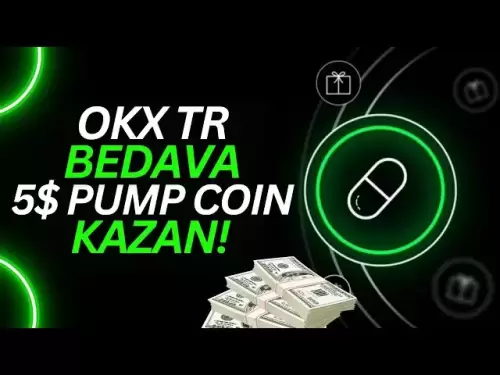-
 Bitcoin
Bitcoin $117400
-0.46% -
 Ethereum
Ethereum $3768
0.60% -
 XRP
XRP $3.551
2.09% -
 Tether USDt
Tether USDt $1.000
0.00% -
 Solana
Solana $203.2
11.30% -
 BNB
BNB $770.9
1.92% -
 USDC
USDC $0.9999
0.01% -
 Dogecoin
Dogecoin $0.2709
-0.02% -
 Cardano
Cardano $0.9024
4.49% -
 TRON
TRON $0.3139
0.60% -
 Hyperliquid
Hyperliquid $45.60
-1.41% -
 Stellar
Stellar $0.4730
-1.34% -
 Sui
Sui $4.025
2.15% -
 Chainlink
Chainlink $19.79
2.19% -
 Hedera
Hedera $0.2724
-2.39% -
 Avalanche
Avalanche $25.93
3.05% -
 Bitcoin Cash
Bitcoin Cash $524.0
-1.83% -
 Shiba Inu
Shiba Inu $0.00001558
0.50% -
 Litecoin
Litecoin $116.7
-0.30% -
 UNUS SED LEO
UNUS SED LEO $8.996
0.00% -
 Toncoin
Toncoin $3.334
1.83% -
 Polkadot
Polkadot $4.506
0.34% -
 Uniswap
Uniswap $10.99
4.83% -
 Ethena USDe
Ethena USDe $1.001
0.03% -
 Pepe
Pepe $0.00001461
3.17% -
 Monero
Monero $320.3
-1.01% -
 Bitget Token
Bitget Token $4.935
0.36% -
 Dai
Dai $0.9998
0.00% -
 Aave
Aave $322.4
-1.25% -
 Bittensor
Bittensor $455.6
9.33%
What Is a Governance Token?
Governance tokens empower holders to participate in decision-making for blockchain projects, shaping their future direction and generating potential passive income.
Dec 17, 2024 at 09:20 am
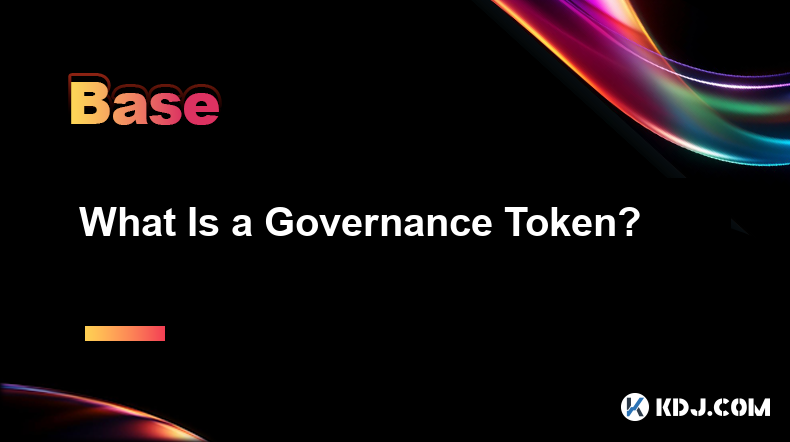
Key Points:
- Understanding the Definition and Role of Governance Tokens
- Analyzing the Benefits of Holding Governance Tokens
- Exploring Different Categories of Governance Tokens
- Investigating the Mechanics of Governance Token Voting
- Evaluating the Top Governance Tokens in the Cryptocurrency Market
What Is a Governance Token?
A governance token is a type of cryptocurrency that grants its holders the power to participate in the decision-making process of a decentralized autonomous organization (DAO) or blockchain project. These tokens provide various levels of influence, allowing holders to express their opinions, vote on proposed changes, and shape the future direction of the project.
Benefits of Holding Governance Tokens
- Participatory Governance: Hold governance tokens to gain voting rights on important project decisions, ensuring that their opinions influence the outcome.
- Passive Income Generation: Some governance tokens provide holders with passive income in the form of staking rewards or airdrops for participating in governance activities.
- Community Building: Governance tokens foster a sense of community among holders, bringing together diverse perspectives for collaborative decision-making.
Categories of Governance Tokens
Governance tokens can be classified into two main categories:
- Protocol Governance Tokens: These tokens represent voting rights for changes to the underlying protocol, including updates to algorithms, technical parameters, and roadmap decisions.
- DAO Governance Tokens: These tokens grant voting rights in a DAO, allowing holders to participate in decision-making related to project operations, treasury management, and ecosystem development.
Mechanics of Governance Token Voting
Governance token voting typically involves the following steps:
- Proposal Creation: Token holders initiate proposals for changes or updates to the project.
- Voting Period: A voting period is designated, during which token holders can cast their votes on the proposals.
- Quorum Requirement: A minimum percentage of token holders (e.g., 50%) may need to participate for a vote to be valid.
- Threshold Requirements: Proposals may require a certain number of votes (e.g., a simple majority or a supermajority) to be approved.
Top Governance Tokens in the Cryptocurrency Market (Excluding FTX)
The top governance tokens in the cryptocurrency market (excluding FTX) include:
- Uniswap (UNI): Uniswap governance token, providing voting rights for changes to the decentralized exchange protocol.
- MakerDAO (MKR): MakerDAO governance token, used to vote on stability fees, collateral types, and risk parameters within the MakerDAO system.
- Aave (AAVE): Aave governance token, enabling voting on risk parameters, lending market operations, and the distribution of community funds.
- Compound (COMP): Compound governance token, granting voting rights on interest rates, collateral factors, and new asset listings within the lending protocol.
- Curve (CRV): Curve governance token, used to vote on the addition of new liquidity pools, fee structures, and asset allocations within the Curve ecosystem.
FAQs:
Q: How does the value of governance tokens fluctuate?
A: The value of governance tokens is influenced by various factors, including market demand for voting rights, the performance of the underlying protocol or DAO, and overall sentiment towards the cryptocurrency market.
Q: Do all governance tokens provide equal voting power?
A: The voting power of governance tokens may vary depending on the project's governance model. Some projects may implement weighted voting systems, where token holders with larger balances have greater voting power. Others may use one-token-one-vote systems, where each token holder has the same voting weight.
Q: Can governance tokens be traded on exchanges?
A: Yes, governance tokens are typically listed on cryptocurrency exchanges, allowing holders to buy, sell, and trade their tokens.
Disclaimer:info@kdj.com
The information provided is not trading advice. kdj.com does not assume any responsibility for any investments made based on the information provided in this article. Cryptocurrencies are highly volatile and it is highly recommended that you invest with caution after thorough research!
If you believe that the content used on this website infringes your copyright, please contact us immediately (info@kdj.com) and we will delete it promptly.
- BlockchainFX, PEPE, and USDT: What's the Buzz in the Crypto Jungle?
- 2025-07-22 18:50:12
- Ripple's RLUSD: Institutional Backing Fuels Stablecoin Ascent
- 2025-07-22 18:30:12
- Dogecoin, AI Coins, and the Future of Crypto: What's the Hype?
- 2025-07-22 18:30:12
- Weak Passwords, Hackers, and Company Breaches: A Tech Expert's Wake-Up Call
- 2025-07-22 18:50:12
- Jito Labs' BAM on Solana: A New Era for DeFi or Just Hype?
- 2025-07-22 18:55:13
- PENGU Memecoin's Daily Surge: Riding the Pudgy Penguins Wave
- 2025-07-22 19:00:13
Related knowledge
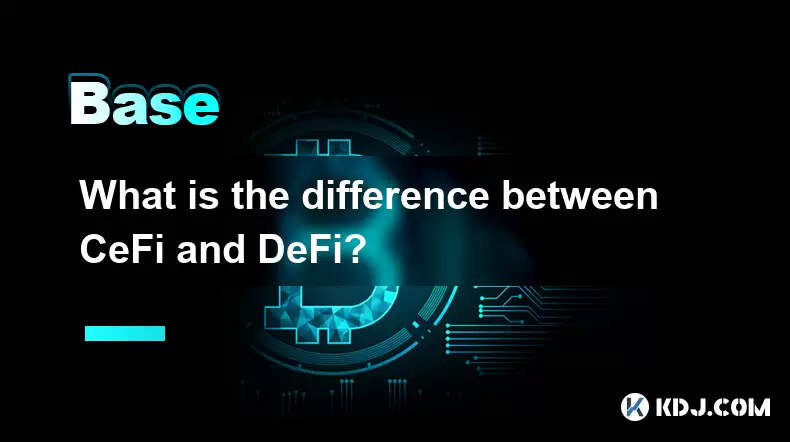
What is the difference between CeFi and DeFi?
Jul 22,2025 at 12:28am
Understanding CeFi and DeFiIn the world of cryptocurrency, CeFi (Centralized Finance) and DeFi (Decentralized Finance) represent two distinct financia...
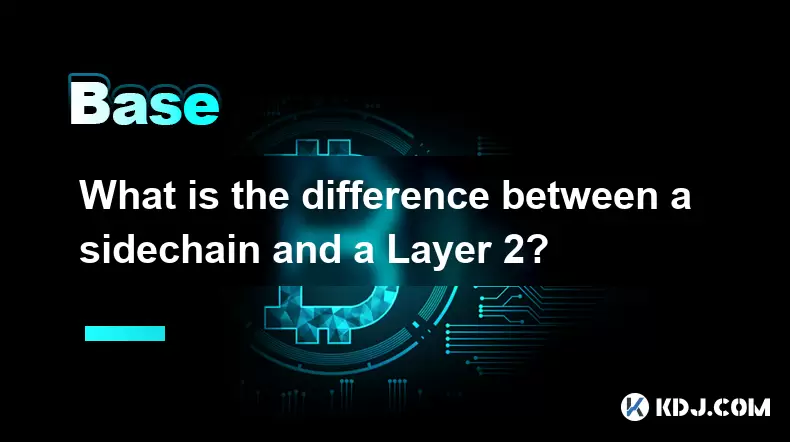
What is the difference between a sidechain and a Layer 2?
Jul 20,2025 at 11:35pm
Understanding the Concept of SidechainsA sidechain is a separate blockchain that runs parallel to the main blockchain, typically the mainnet of a cryp...
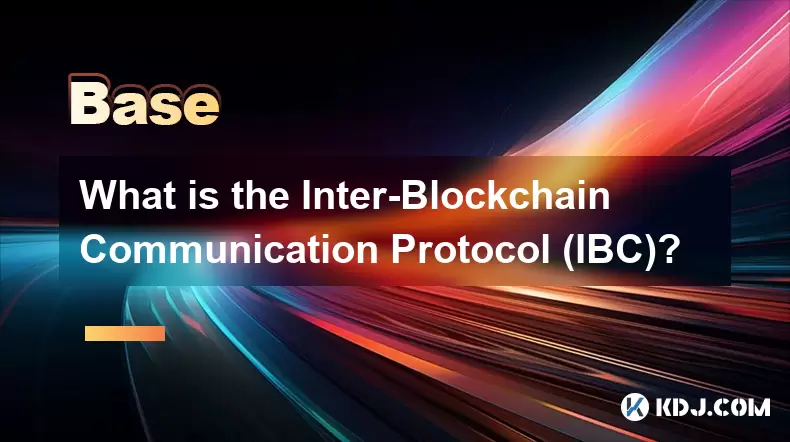
What is the Inter-Blockchain Communication Protocol (IBC)?
Jul 19,2025 at 10:43am
Understanding the Inter-Blockchain Communication Protocol (IBC)The Inter-Blockchain Communication Protocol (IBC) is a cross-chain communication protoc...
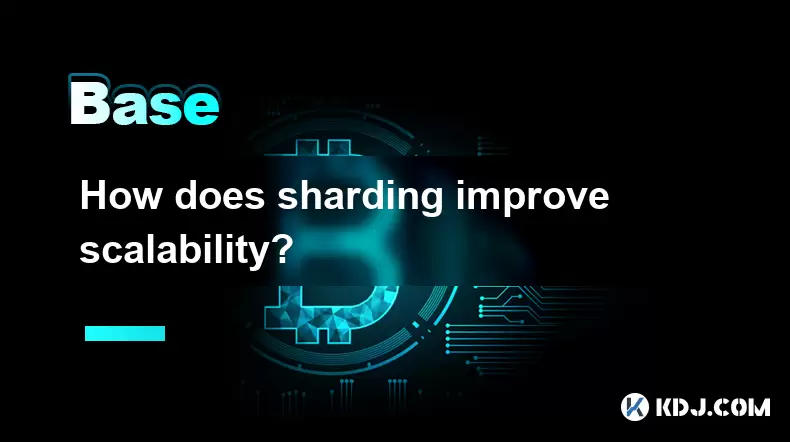
How does sharding improve scalability?
Jul 20,2025 at 01:21am
Understanding Sharding in BlockchainSharding is a database partitioning technique that is increasingly being adopted in blockchain technology to enhan...
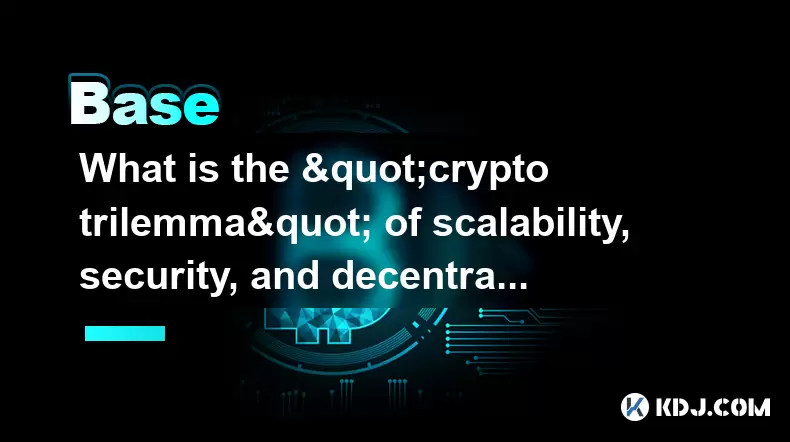
What is the "crypto trilemma" of scalability, security, and decentralization?
Jul 19,2025 at 06:28pm
Understanding the Concept of the Crypto TrilemmaThe crypto trilemma refers to the challenge of simultaneously achieving scalability, security, and dec...
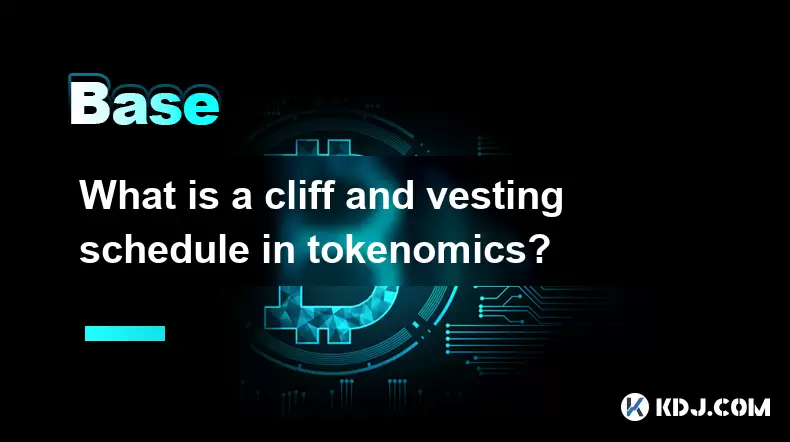
What is a cliff and vesting schedule in tokenomics?
Jul 20,2025 at 10:28am
What Does a Cliff Mean in Tokenomics?In tokenomics, a cliff refers to a specific period during which token holders are not allowed to access or transf...

What is the difference between CeFi and DeFi?
Jul 22,2025 at 12:28am
Understanding CeFi and DeFiIn the world of cryptocurrency, CeFi (Centralized Finance) and DeFi (Decentralized Finance) represent two distinct financia...

What is the difference between a sidechain and a Layer 2?
Jul 20,2025 at 11:35pm
Understanding the Concept of SidechainsA sidechain is a separate blockchain that runs parallel to the main blockchain, typically the mainnet of a cryp...

What is the Inter-Blockchain Communication Protocol (IBC)?
Jul 19,2025 at 10:43am
Understanding the Inter-Blockchain Communication Protocol (IBC)The Inter-Blockchain Communication Protocol (IBC) is a cross-chain communication protoc...

How does sharding improve scalability?
Jul 20,2025 at 01:21am
Understanding Sharding in BlockchainSharding is a database partitioning technique that is increasingly being adopted in blockchain technology to enhan...

What is the "crypto trilemma" of scalability, security, and decentralization?
Jul 19,2025 at 06:28pm
Understanding the Concept of the Crypto TrilemmaThe crypto trilemma refers to the challenge of simultaneously achieving scalability, security, and dec...

What is a cliff and vesting schedule in tokenomics?
Jul 20,2025 at 10:28am
What Does a Cliff Mean in Tokenomics?In tokenomics, a cliff refers to a specific period during which token holders are not allowed to access or transf...
See all articles

























